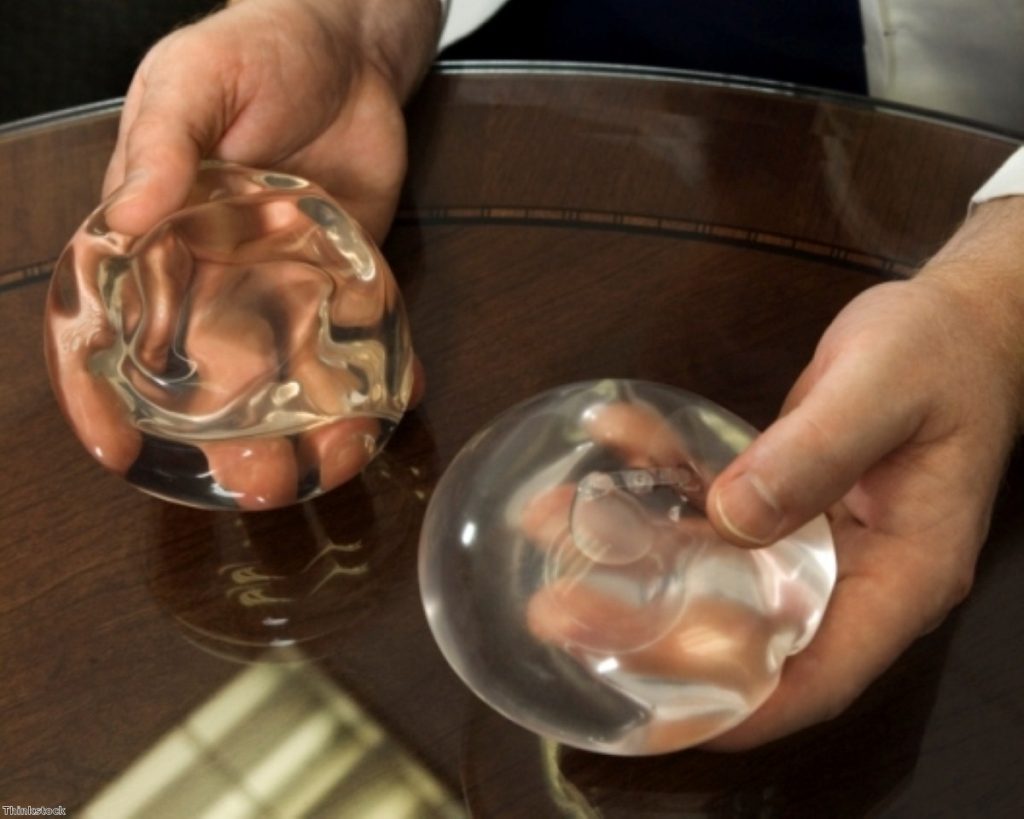Defective breast implants ‘handled poorly’
Huge questions remain over the safe replacement of defective breast implants, MPs have warned.
The Commons' health committee said "important concerns" needed to be addressed as two inquiries into cosmetic interventions and the government's reaction continued their work.
MPs said the government's response was "inadequate" after an initial warning about faulty PIP breast implants was issued in March 2010.
It was not until December 2011 that efforts to address the problem in Britain began to gather momentum, after a warning from the French government.
"The committee recognises that private clinics had a duty to contact their patients directly," today's report stated.
"But the Medicines and Healthcare products Regulatory Agency and the Department of Health also had a duty to raise public awareness."
Health committee chair Stephen Dorrell added: "The obligations on both care providers and the MHRA need to be urgently reviewed to ensure that proper safeguards exist around the use of devices intended for human implantation."
Around 40,000 British women are thought to have received the implants, some 37,000 of which were through private clinics as cosmetic surgery.
The NHS is paying for women to have their breast implants removed, but ministers are refusing to pay for the cost of getting them replaced.
MPs propose asking women to pay for the replacement cost, estimated to be about £1,500, but the government says this would set a dangerous precedent.
Mr Dorrell said: "It flies in the face of common sense to put women through two procedures when one will do."
MPs also expressed frustration that it is still unclear exactly how dangerous the faulty breast implants actually are.
The silicone, which was supposed to be used in mattresses, is not thought to be any more toxic than that usually used in breast implants. But initial tests suggest the defective implants have a higher risk of rupturing.
"The information available is acknowledged to be insufficient either to allow the regulator to make evidence-based judgements about the safety or otherwise of implants that were in widespread use, or to allow patients' clinicians to know whether their individual patient is affected," Mr Dorrell added.
"This is clearly unsatisfactory."
Further concerns were voiced about the advice given to patients by doctors, some of which is suspected to have been of poor quality.
MPs recommended that the General Medical Council conduct its own probe into these reports, alongside the two government-commissioned reviews.





-01.png)